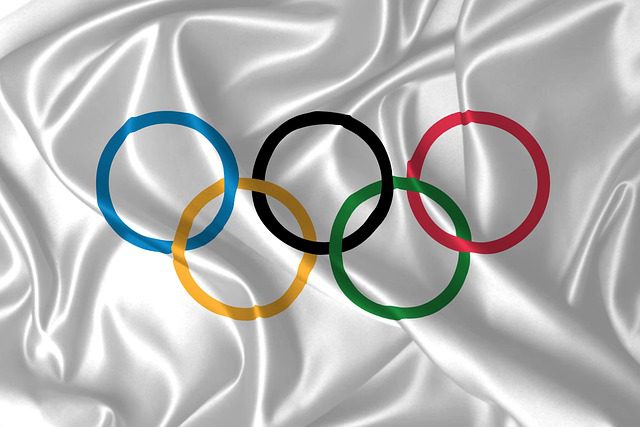
I don’t know much of anything about the Olympics.
I don’t know much of anything about gymnastics.
I don’t know much about Simone Biles, except that she is an Olympic gymnast and the best at gymnastics in the world. Once in awhile I see videos of her performing a gymnastics routine online, and I watch, and I don’t know what to say because I know next to nothing about gymnastics. But I’ve certainly never seen anybody do gymnastics better than she does.
Today I was busy being oblivious about the Olympics and gymnastics as usual, when I saw some people defending Simone Biles. I looked into it and found it was because some internet crackpots were mocking Simone Biles, because she’d stepped back and not participated in an Olympic event with the rest of her team– as a result, they won silver when they’d been expected to win gold. She had had to step back for mental health reasons. You can read a detailed account of the situation here.
When I read about this, I was more impressed by Simone Biles than I’d ever been. Because while I don’t know much of anything about gymnastics, I know a little about trauma and the mental health issues that come with them.
I haven’t made any secret of the fact that I’ve survived a rape, in the context of my childbirth with Rose; I was also molested by the accomplice of the midwife who raped me. For some reason it’s the memory of the molestation that comes back more sharply whenever I have a flashback.
Flashbacks are not just my imagination: they are a real, neurological response to having been raped. The brain is an organ, a body part just like a bone or a muscle. The nervous system is a physical object made up of lots of little cells, just as the cardiovascular system is. They’re not wishy washy imaginary things. They’re body parts that can get injured, and when they are injured they malfunction.
I don’t know the first thing about gymnastics. But I suppose that if you land the wrong way when you dismount the balance beam, you could fracture your ankle. Then the bone inside your ankle would be broken where it ought to be whole. That would hurt, and it would change the way you used your ankle. You might not be able to use your ankle for a few weeks after the injury or much longer, depending on how bad it was. A severe break might mean you can never dismount like that again. If you were performing hand springs and sprung the wrong way, you might tear a muscle in your forearm. That muscle would hurt and swell and not do what you wanted it to do afterward. You might have to get surgery and stop turning hand springs for a long time, depending on how bad it was. And both of those injuries would be invisible from the outside. All the untrained professional might be able to see, is an arm and a leg looking like they usually do. They might wonder why you were limping like that or holding your arm in such a funny way, and call you weak.
The brain and the nervous system can also be injured.
When a person is in a terrifying situation, your brain and your nervous system react to keep you alive. They change the chemistry of your body and the way your organs work together, so you can run or hide or fight for your life. And if that terrifying situation is severe enough, the strain can break your brain and nervous system. They will stop functioning properly just like a broken ankle or a torn muscle. They’ll go haywire and start randomly triggering panic reactions in the other organs, due to that injury. This isn’t because the trauma survivor is weak. It’s because she’s injured. Injured bodies can’t do what well bodies can do until that injury has been addressed.
My rapist was from Martin’s Ferry. The night of Rose’s abusive and nearly lethal childbirth ended with the rapist’s accomplice, the woman who molested me, dumping me in the hospital at Martin’s Ferry almost an hour from my house. Nearly ten years later, earlier this summer, I was driving on the freeway past Martin’s Ferry to the Ohio Valley Mall. I am a good driver. I like to drive on the freeway because I find it relaxes me. But just at that moment, driving past Martin’s Ferry, I started to get sick. I started to feel afraid. I felt the ghost of that woman’s hand molesting my side again, just as I have during every flashback for ten years. This is a result of the injury to my brain and nervous system, and to how it makes my body react to being in a context that reminds me of my trauma. I started to have trouble with what I was doing. I didn’t crash the car, but for a few minutes I had to concentrate on my driving as if I had just learned it and was taking the driving test again instead of doing something that comes naturally now. If I had been involved in something much more complicated than ordinary driving– driving in some kind of Olympic race where my every move with the car was graded for elegance and precision– I would have lost that contest.
I don’t know anything about gymnastics. But I know that a gymnastics routine at the Olympics is one of the most intensely complicated activities a human body can perform. I couldn’t begin to imagine how to make the human body do something like that at the best of times.
Simone Biles, I’m told, is the best gymnast in the world. I am nothing like her except that we were both abused in a medical context. She was sexually abused by Larry Nassar, the monster who used to be the doctor for the USA gymnastics team. She is the only survivor of that scandal who is still competing. She has admitted that the Tokyo games being put off for a year contributed even more stress, as it meant another year working with the USA Gymnastics team who were responsible for her abuse.
Being in the Olympics is the context of Biles’s trauma, just as driving to Martin’s Ferry is part of mine. Biles went to the Olympics in Tokyo– not just any Olympic games, but a surreal and frightening one during a historic pandemic. In that mental state, with all of those triggers around her, she began to compete in the gymnastic events I know nothing about, on international television in front of millions or billions of people, competing against the other best gymnasts in the world. She faltered and made more mistakes than usual– just as I nearly did when I drove past Martin’s Ferry. She realized that she was having a mental health issue. Then she stepped back and decided to cheer the rest of her team on to a silver medal, instead of continuing to compete.
Some people are jeering at her for this, as if it’s a sign of weakness.
Personally, I think that it’s a sign of tremendous strength: to make it all the way to the games and to happily cheer on her team, rather than having a much worse breakdown, right there at the Olympics which are the context of her trauma.
I don’t know much about the Olympics, but I know just a little bit about the courage that must have taken.
She sounds like a hero to me.
Image via Pixabay
Mary Pezzulo is the author of Meditations on the Way of the Cross and Stumbling into Grace: How We Meet God in Tiny Works of Mercy.
Steel Magnificat operates almost entirely on tips. To tip the author, visit our donate page.












